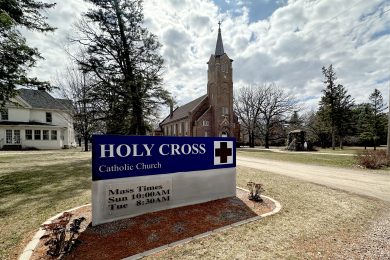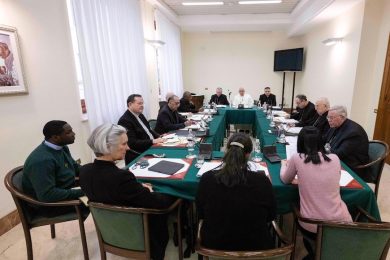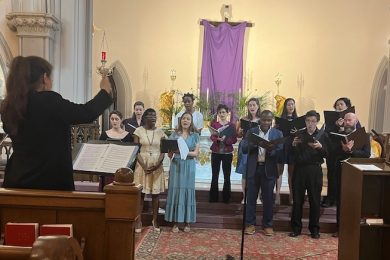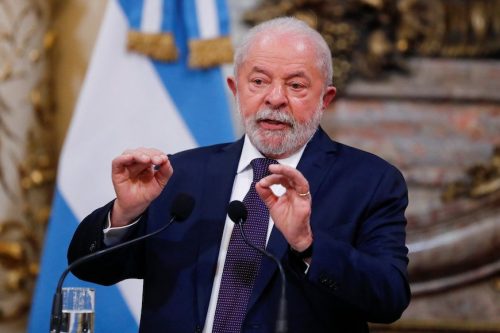By Eduardo Campos Lima | OSV News
SÃO PAULO (OSV News) — The revocation of a decree on abortion by President Luiz Inácio Lula da Silva’s administration Jan. 16 spurred outrage among pro-life activists, who said the move may loosen control on abortion in Brazil.
Lula revoked an edict issued by then-President Jair Bolsonaro in 2020 that required hospitals and other health care providers to notify police when women sought an abortion — even when the procedures were legal.
In Brazil, a legal abortion can only be obtained in cases of sexual violence, when the mother’s life is in danger due to pregnancy, or if the fetus is anencephalic.
Bolsonaro’s decree also determined that biological fragments of the child in utero should be preserved to allow the police to use DNA technology to investigate who perpetrated the crime.
According to Lula’s Health Minister Nisia Trindade, the edict violated the Brazilian health care system’s guidelines. Along with other revoked decrees, it was, according to her, “scientifically baseless” and “did not have legal foundation.”
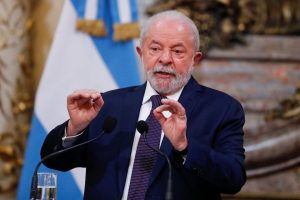
Feminist groups in the South American country celebrated Lula’s decision to revoke Bolsonaro’s decree, because, they argued, it violated women’s privacy and autonomy in cases of sexual violence. The mandatory denunciation also could have put the victims in danger of suffering retaliation from the perpetrator, they added.
The Catholic Church and other Christian groups were quick to react, repudiating Lula’s action. For them, one of the greatest problems with suspending Bolsonaro’s decree is that it is now easier for women who falsely claim to be victims of rape to get a legal abortion.
The National Conference of Brazilian Bishops — known as CNBB in Portuguese — issued a statement Jan. 18 affirming that Lula’s cancellation of the decree was a way of making it easier for women to obtain an abortion.
“The National Conference of Bishops of Brazil (CNBB) does not agree and expresses its disapproval of any and all initiatives that signal to loosening control of abortion,” the bishops said.
Their statement added that such a measure “needs to be clarified by the federal government, considering that the defense of the unborn child was a commitment assumed in the campaign.”
Lula was questioned about his stance on abortion on a number of occasions during the presidential campaign.
After mentioning during an event in 2022 that abortion should be dealt with as a matter of public policy, Lula affirmed in a letter to evangelical Christians that he is “personally against abortion” and that such a theme should not be “decided by the president, but by the National Congress.”
The perception of the Catholic Church and other pro-life entities is that Lula has a plan to increase the access to legal abortion in Brazil little by little.
“The decree’s revocation looks almost like a kind of vengeance. It is a measure to please the part of the people who electorally supported such ideas, but it is not an act which seeks the common good,” Bishop Ricardo Hoepers of Rio Grande, president of the bishops’ pastoral commission for life and family, told OSV News.
Bishop Hoepers affirmed the church considered Bolsonaro’s decree to be positive, given that it incentivizes the denouncement and detention of sexual offenders.
“Many children and teenagers in Brazil are raped and get pregnant at home, with the perpetrator being their father, their uncle, their grandfather. Such crimes have to be denounced in order to give the children the protection they need,” Bishop Hoepers said.
Lenise Garcia, who heads the pro-life movement Brazil Without Abortion, emphasizes “that the Brazilian legislation obliges the denunciation of sexual crimes regardless of Bolsonaro’s decree.”
“The revocation has only created a legal void. In fact, doctors and nurses still have to report cases of rape to the police, but now they do not count on the guidance that used to be provided by the decree,” Garcia told OSV News.
She said that doctors are the most impacted agents with cancellation of the edict.
Pedro Spineti, president of the Brazilian Association of Catholic Doctors, said that many health care professionals are worried about potential changes in abortion legislation in Brazil.
“As pro-life doctors, we can express our conscientious objection and reject conducting an abortion. But we know that there are movements in Brazil trying to curtail such (a) right,” he told OSV News.
Spineti said that pro-life activists are now looking for different ways to reverse the Health Ministry decision, from pushing for a new decree in Congress to finding legal ways to annul Lula’s revocation of the edict.
Amid the politically charged atmosphere in Brazil since the 2022 presidential campaign, one of the Catholic Church’s current challenges is to be able to discuss such themes without being identified with any side of the dispute, according to Bishop Hoepers.
“Political groups have taken control of the debate on abortion. We want to discuss it with the perspective of the common good,” he said.



